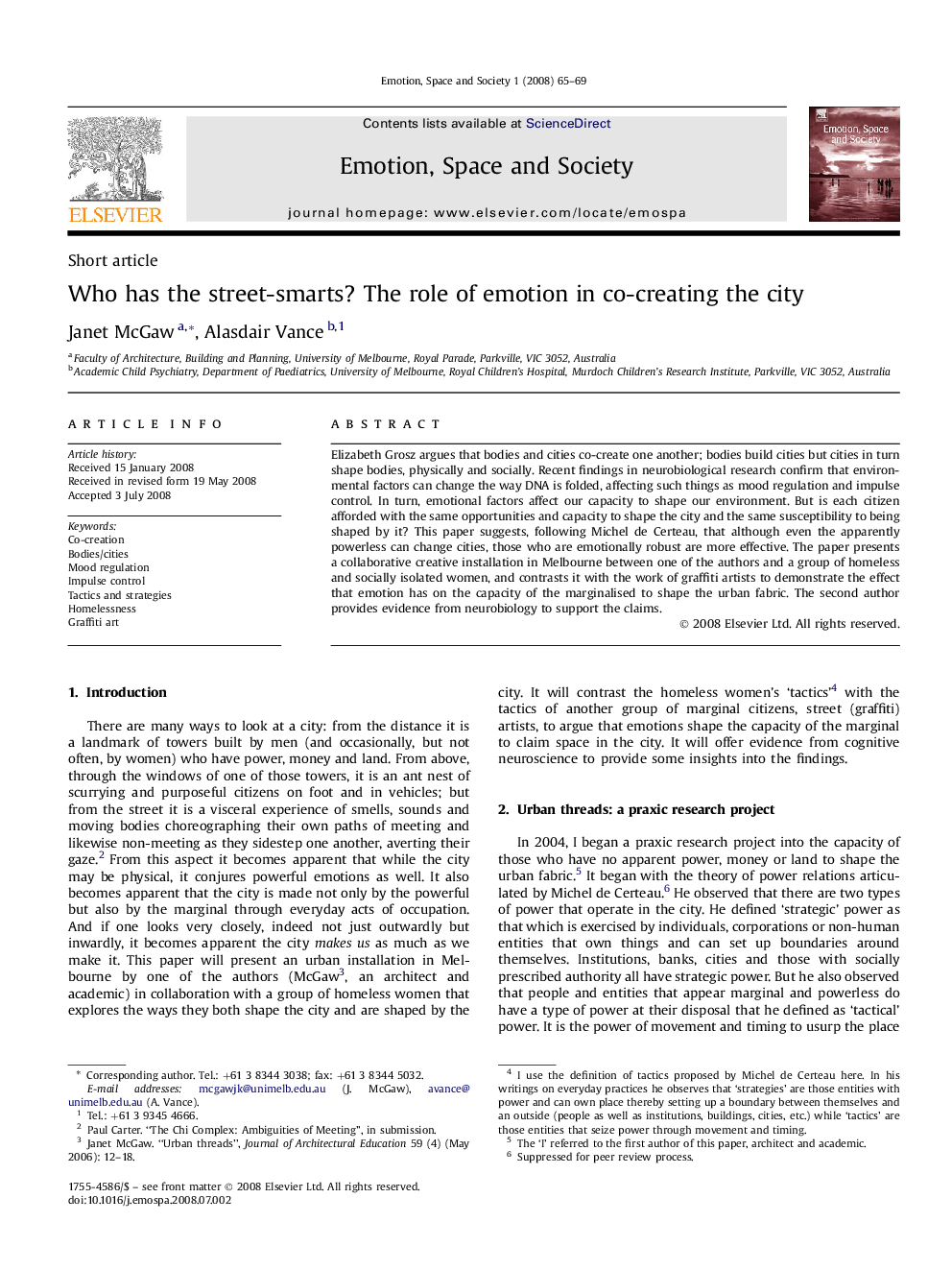| Article ID | Journal | Published Year | Pages | File Type |
|---|---|---|---|---|
| 946894 | Emotion, Space and Society | 2008 | 5 Pages |
Elizabeth Grosz argues that bodies and cities co-create one another; bodies build cities but cities in turn shape bodies, physically and socially. Recent findings in neurobiological research confirm that environmental factors can change the way DNA is folded, affecting such things as mood regulation and impulse control. In turn, emotional factors affect our capacity to shape our environment. But is each citizen afforded with the same opportunities and capacity to shape the city and the same susceptibility to being shaped by it? This paper suggests, following Michel de Certeau, that although even the apparently powerless can change cities, those who are emotionally robust are more effective. The paper presents a collaborative creative installation in Melbourne between one of the authors and a group of homeless and socially isolated women, and contrasts it with the work of graffiti artists to demonstrate the effect that emotion has on the capacity of the marginalised to shape the urban fabric. The second author provides evidence from neurobiology to support the claims.
